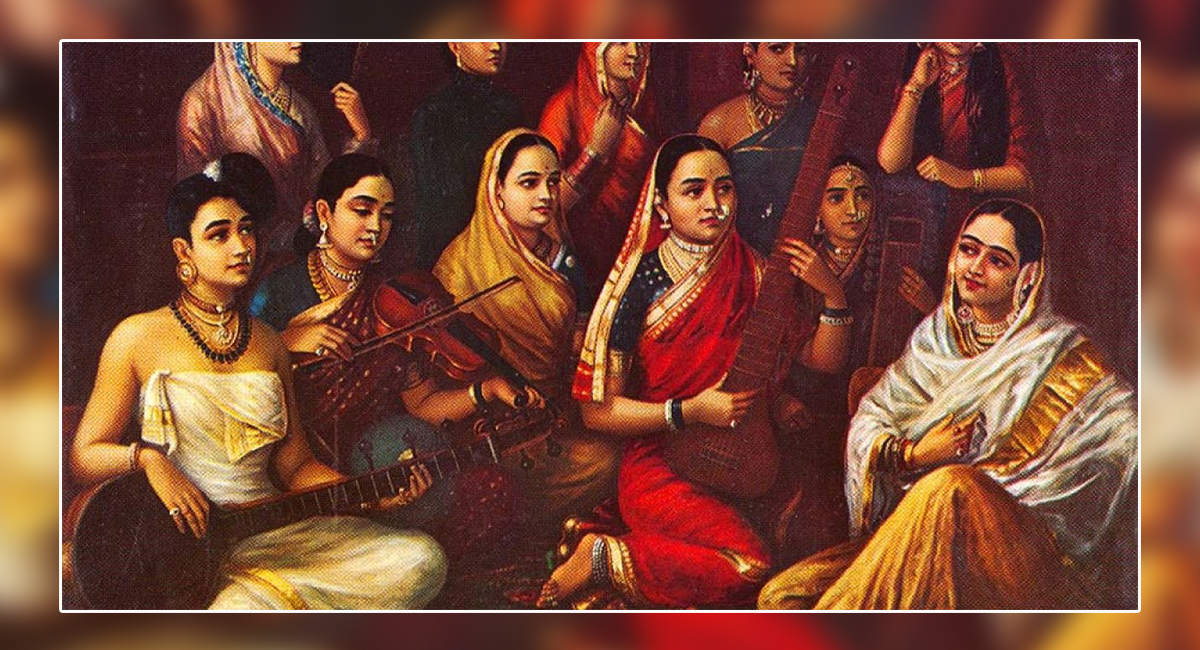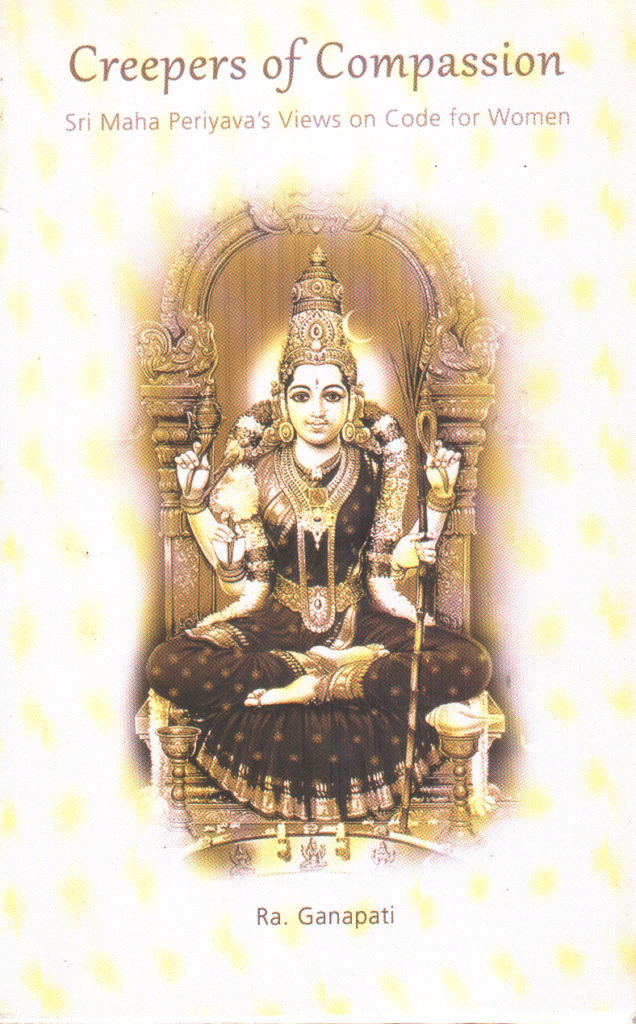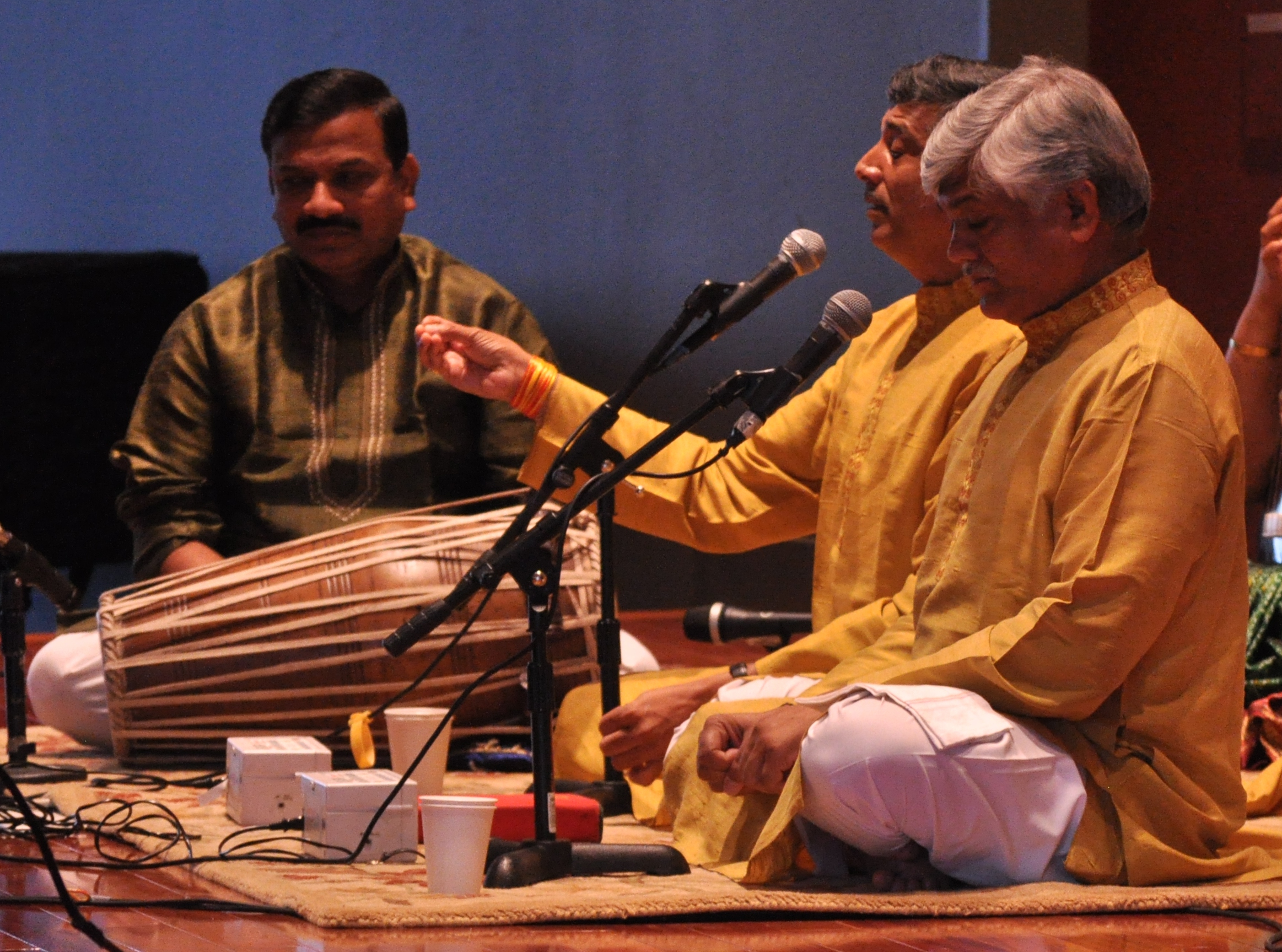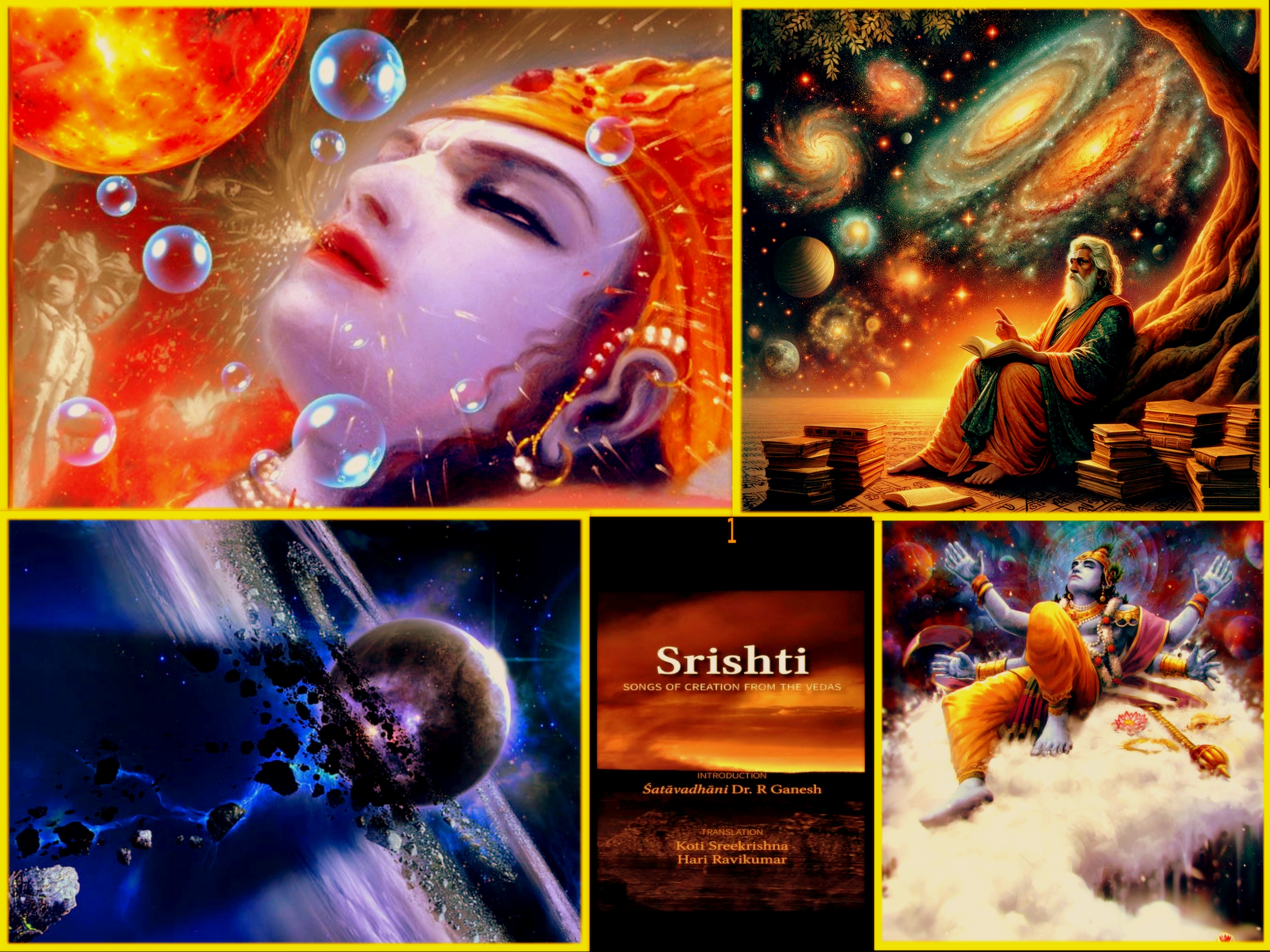- Visitor:51
- Published on:
Creepers of Compassion – A Book Review
Published by Veda Prakaasanam, Creepers of Compassion would make a great gift to both men and women who are interested in learning more about our Dharmashastras, spirituality, culture and traditions of Bharat. It is the culture of a land/community that is directly responsible for attaching meaning to their belief systems and practices.

When I was first introduced to the book ‘Creepers of Compassion’ – Sri Maha Periyava’s Views on Code for Women, I was bereft of any knowledge about who Jagadguru Periyava was, leave alone its contents. I downloaded a soft copy of the book, flipped through its pages briefly, and put it aside to read some other day. The term Periyava has its roots in the Tamil language, meaning ‘the revered one’. It is specifically used to address the pontiff of a mutt (religious establishment) established by Sri Adi Sankara. Literally, the term Maha Periyava means ‘a great person or a pontiff’. But, with respect to this book, it refers to His Holiness Chandra Sekharendra Swami of the Kanchi Mutt, who is believed to be an incarnation of Siva.
A discussion in Clubhouse that I happened to attend on the not-so-often-talked about subjects of Streettva and Stree-Dharma had several references of this book – ‘Creepers of Compassion’ – that transported me to a completely different world of the journey of my own life as a woman since the time I attained puberty. It seemed as if the three-day long Clubhouse discussions came as a continuous reminder to me from my own mother who always used to say – “A woman must be like a woman, not like a man.” At that time, it did not make much sense to me; absorbed as I was in the free-spirited nature of the campus life of a top University in the National Capital of India.
I would perhaps not have paid much heed to whatever that was wrong with this University, until I happened to question one of my Professors on her double-standards regarding the sacred institutions of the family and marriage. Instead of answering my question, she tried playing dilly-dallying tactics in order to confuse the rest of the students in the class on the concepts of gender, and the relationship between a man and a woman in a marriage. While I kept pushing myself and remained firm on my stance, she sounded equally loud and angry at me. How rightly it has been said that there comes an opportune moment for everything in life!
Certainly, Maha Periyava’s views on women wouldn’t have made much sense to me today had I imbibed the same deracinated self in me as that of the Professor. I completed reading the book within just a few hours after the first day of our Clubhouse discussion about which I have mentioned above. This is a text that would look too “patriarchal” or “regressive” for any urban, middle-class working woman whose brain has been trained, both knowingly and unknowingly, to measure everything in life from the monetary point of view. Isn’t it a sign of the failure of our collective intellectual thought-processes to have accepted a borrowed discourse called ‘Feminism’ when actually we do not need such a discourse at all?
While trying to understand Periyava’s views on women, marriage, and family, and as well as the responsibilities of a woman towards the well-being of all her family members including her children, it became so easy for me to relate with whatever I myself had experienced with my health a few years back. My initiation into Devi worship and reciting Devi mantras every morning and evening began when I was battling several problems both at the home and professional fronts. Single-minded devotion and focus on the Devi can bless us with immense Sákti to carry out special tasks in our life about which we perhaps never even imagined.
By showering upon us Her immense grace, it’s the Devi who makes possible for Her sádhákas to understand and appreciate life in all its varied hues. Here, when I talk about life, it’s the masculine (Purusá) and the feminine (Prákriti) principles both that are responsible for creating, sustaining, and nurturing life. They balance each other, while being different in their own unique ways. But, the supposed difference between the male and the female exists only at the superficial level of our existence. When they both unite in the Bráhman, they become one, each indistinguishable from the other. The Euro-centric, binary worldview of understanding gender in terms of the conflicting male-female divide has done more harm than good.
Have we ever tried to understand the reasons behind the insanely increasing female health problems in today’s time, or for that matter, the causes behind failed marriages, increasing rates of divorce and infertility, or increasing cases of depression and suicide among both men and women? Why has modern medical science, despite all its new advancements, proven to be a failure in tackling health problems like Polycystic Ovarian Syndrome (PCOS)? On the other hand, what does elegance (lalitam) signify for a woman? In this context, what is the importance of the saree in Indian culture and what role does it play in enhancing the lalitam of any woman along with minimal ornaments?
These and many more such questions are what Periyava tries to address by illuminating us through his expansive, in-depth knowledge of how a man-woman relationship must be, their respective roles in the grihasthi, and why we need not understand grihastha ashrama through a fake, one-sided narrative of equality. Our Sástras have revealed the concept of a Guru (spiritual master) to whom a man has to surrender. On the other hand, for a woman, it is her husband in place of a Guru to whom she is expected to surrender. Periyava says that while a man has to follow rigorous austerities of life by surrendering himself to a Guru so as to learn the Supreme Knowledge from him, the same can be easily obtained by a woman by just surrendering herself to her husband.
The “modern” idea of independence stands in stark contrast to that of saranagati, i.e. surrender, as prescribed in our Sástras. In our philosophy, a truly Pativráta Naari, it is believed, is more powerful than anyone else in the Universe, even more than the Creator Himself. Can there be any better example of this than the story of Savitri and Satyavan or even Kannaki and Kovalan? But, this does not imply that the wife is a slave to her husband. Instead, she is a friend and companion (sakha) who also has the right to question him and even contradict him for his thoughts and actions. Periyava illustrates this through the meaning of Saptapadi and examples of Veda mantras such as Samrajnee bhava that are chanted during any Hindu marriage ceremony.
All these reinforce the fact that the wife is always her husband’s companion. She supports him in all situations and at every stage of his life. In Sanatan Dharma, marriage is a sacred union. Most of the arguments of Periyava on marriage and family are based on this understanding. It is because the institution of marriage is one among the many ways of attaining moksha if both the grihapati and the grihalakshmi follow and practise their own swabhava and swadharma diligently. The family too, has utmost cultural and spiritual importance in the Hindu civilisation. It is through the family that the grihapati and the grihalakshmi, along with their children, can lead a disciplined and peaceful life well bonded through love and affection.
Hence, the family as an institution is a trait of a highly developed and civilised society. On the contrary, the Westernised Feminist model of ‘women’s empowerment’ is a war against the woman and especially the feminine/motherly instincts in her. These are the same instincts that teach us to respect and celebrate pregnancy, childbirth, and motherhood as life-changing processes which naturally lead a woman towards a higher level of spiritual transformation. But, what happens when we do not respect these instincts or provide them the much required space to grow and develop? Negative shifts in human relationships, marriage, society, culture, and the family system are bound to occur when women try to surpass their basic nature in the mad rush to become ‘equal’ to men.
In the name of equality which has come to be mis-interpreted as ‘sameness’, the West-inspired version of ‘Feminism’ has overturned time-honoured traditions, including religious beliefs and practices. To a large extent, this has been responsible for bringing about unhealthy changes in the family and the society. There are certain unalterable physical differences between the male and the female from the point of view of praja-utpatti (procreation), which render any attempt to make them ‘equals’ fruitless. For various reasons, women are nowadays guilt-trapped by being made to feel apologetic about their motherly instincts and physical and emotional needs. This is eventually beginning to take a toll on the physical and mental health of not only women, but men too.
Periyava’s thoughts make much sense when we try to comprehend the reasons behind many of the problems that we see around us today. Through his lucid analysis of the subject, Periyava brings to light the fact that since a woman is a Janani, her body and her hormones are different from that of a man. Accordingly, her needs are different as well and she is to be respected for that difference, for the dignity of who she is, and not to fight for what she must never be. It is a part of the motherly instinct in every woman to feel the need to bear a child, become a mother, and make a beautiful home. But, has it become more of a societal expectation for the woman to “prove that she too can do something good”, implying that she also can make money and is as capable and worthy as a man?
By referring to the grihalakshmi of the household as the ‘Domestic Management Executive’, the text draws our attention to the fact that creating a beautiful home and a loving environment for both the older and younger members of the family requires equal passion and dedication as that of any other work. For any woman, this is the naturally-ordained responsibility which Periyava refers to as a varaprasada (blessing). The job of managing the domestic responsibilities of the household cannot be reduced to the ‘intellect’ alone. It is therefore wrong to judge a home-maker as “unintelligent” or “weak”, only because of the reason that she is not engaged in any activity outside the house that rewards her in the form of cash or monetary remuneration.
It is an apprehensive situation for any well-educated woman who consciously and without any external pressure, chooses to prioritise motherhood and family over climbing the “career ladder”. Has it become politically incorrect to celebrate or respect motherhood as a full-time job, or even extol the role of a homemaker? Appropriating a woman’s freedom in the ‘liberal’ discourse of the West has been responsible for making them drift away from their Streetvam or basic femininity, more so after she gives birth and becomes a mother. Periyava explains the essence of motherhood by describing how the child is a part of her own being. Therefore, when the mother goes out to work just a few months after the child’s birth, she literally cannot be at peace away from her child in the workplace.
She can instead choose to invest her energy, efforts and time at a place where it is most needed. It will bring her utmost satisfaction, a sense of eternal bliss and joy that can, in no way, be compared to cash income or appreciation received from her bosses at the workplace. Love, patience, humility, selfless service, and most importantly, Lakshmikaram (auspiciousness or divinity) would then flow naturally. Periyava explains the principle of ‘Simple means, fuller life’ in the context of today’s comfortable and luxurious lifestyles. Has such comfort and luxury been able to bring about happiness and satisfaction in our lives? When a woman can be minimalistic and manage with her husband’s income, she need not run after a life of materialistic extravagance.
Moreover, by trying to ‘balance’ both work and home, she is forced to adopt certain lifestyles, food habits, and ways of living that conflict with her basic feminine nature. This not only drains her away of all her energies but also exercises a negative impact on the overall state of her mind and body, especially after childbirth. Periyava is also not in favour of grandparents looking after the kid in the absence of the mother because of what he says, their obvious age-related health issues. There are many portions in this book where Periyava’s views on women’s health give us a spiritual perspective, completely opposite of what Western medical systems have perceived it to be.
A woman stepping outside of the home on the days of her menstrual cycle and travelling for work naturally draws inauspicious, hostile energies not only towards her but also whosoever comes in contact with her. Can this be explained as one among the several reasons for increasing cases of sexual crime and violence, unnecessary conflicts, suicides, and bizarre diseases in the so-called “modern” society of today? Periyava’s ideas are holistic, carefully conveying the message that when a woman desperately tries to fit herself into the man’s shoes, it takes a toll on her and general disruption of life subsequently follows, both at the gross and subtle levels.
It is in this context that he explains the subtle dynamics of increasing violence against women by men, the causal factors behind it, and how women themselves can prevent such incidents of violence as per Sanatan vigyan. The author explains this through the eyes of Maha Periyava himself in the following words –
“If those born as women reduce their gentleness and adopt the hardness of men, the nature of the male species refuses to accept such an equality of man and woman, and men adopt much more hardness. Consequently, demonic wildness rears its head everywhere……If the female of the human species adopts the nature of the male of the human species, then the male adopts the traits of the asura species.”
Periyava’s views on Stree-Dharma and the woman as the grihini of the household enjoins primary importance on women’s role as the family’s daughter-in-law and as well as the mother of her children who takes care of very single need of all members of the family, besides nourishing them with hygienically-prepared, healthy food. Stree-Dharma or preserving the ways of femininity as enumerated in our Sástras, is intrinsically connected to a biological understanding of women’s minds and bodies. It is the one and only natural path for women as per Sanatan Dharma. Periyava explains it beautifully through the concept of Stree moolam sarva dharma (meaning, women are at the root of a tree called Dharma).
For the grihini, the griha (house) is her empire. She neither wastes time in useless gossip nor remains hooked to the television whenever she finds some time for leisure. Being the focal point for all fortunes of the household, she is not egoistic or competitive. She showers love on her husband just like a mother does to her child, while at the same time, also satisfying his carnal pleasures. She is someone who seriously engages herself, along with other women, in reading scriptures (excluding the Vedas), religious devotion and prayers as a part of her daily chores. Periyava’s views with respect to sástra virodham actions (going against the sástras) such as women being prohibited from reading the Vedas or even reciting the Vedic mantras during Kali Yugá are convincingly and elaborately explained.
A grihini who performs her household chores for the sake of her own family and her own home with the right spirit, can transform every physical work into a new kind of art. In this way, she can discover her own sublime beauty, an entirely new self to her that can help her spend her time purposefully even by staying at home. Chapter 9 Sloka 26 of Manu Dharma Sástra also states that there exists no difference between a grihini and a Mahalakshmi. But, when women enter a workplace that demands adherence to strict schedules of work, a subtle shift takes place in the natural order of the masculine and the feminine, which not only impacts women’s relationships with her colleagues and superiors at work, but also adversely affects her femininity.
Periyava talks about restoring that balance between the masculine and the feminine through the lens of Sanatan Dharma, as prescribed in our Dharmashastras. This now brings us to the question – Can we think of a family without our mothers and grandmothers? Irrespective of whether they earn or not, would it be justified to deny their contributions in looking after the needs of each and every single member in the family? I found it extremely insightful when the author elucidates Periyava’s thoughts on the role of the grihini through the following words –
“If the grihini, who is extolled as illaththarasi (the Queen of the house), is awakened in terms of atman (the Self) and dharma, then that is adequate. As the lamp that is lit in the yard sheds its light to the hall, the verandah and the entire room, her radiation itself would cleanse everybody else in the household. In addition to reading religious books, it is only the grihinis who can procedurally practise the vratas (vows, fasting) as prescribed in our texts. Simultaneously, juggling between office work and observing the vratas would end up in making many compromises.”
Hence, the art of home-making is a sádhana in itself. What Periyava continuously tries to reiterate is the fact that when undertaken as a sádhana, a grihalakshmi can be blessed with immense potentialities to realise her true nature, her Streetva, which can also help her learn how to respect the specific demands and requirements of her own body and thereby attend to them. She eventually becomes closest to Parasákti or the Devi who embodies all forms within Her. Home-making is just another beautiful art which, when performed with utmost patience and dedication, can endow women with an ástitva of their own. Motherhood is an intrinsic and inseparable part of this art.

A mother who is there for her kids throughout the day can not only properly look after all their needs, but also ensure that they are not misguided by people who spend time with them in her absence. The right guidance through a mother who is not subjected to the constant uncertainty and doubt of a hectic corporate lifestyle, can raise children with a healthy mindset and body who grow up to be responsible citizens of the country. Periyava’s insights on womanhood are deeply Dharmic based on Sástric injunctions. Yet, they have not failed to lose their realistic appeal. A saint himself, his views on Stree-Dharma and Streetva must not be understood as discouraging all women from taking up any form of activity/employment outside the four walls of the home.
Teaching and medicine, according to Periyava, can be undertaken by women, not with the sole motivating factor of making money but as a means of offering their selfless services to the society. He further says that it is the responsibility of the society to provide adequate opportunities to women who are extraordinarily talented so that they can cultivate their talents and in turn, can be of service to the society in their own respective fields. There are numerous examples of women from our own itihasa whose names have forever remained etched in various domains such as knowledge and literature, governance and administration, warfare, fine arts, etc.
But, at the same time, Periyava argues that if a majority of the women desire to follow the path of exceptions, they would invite ruin for both the society and the family in the long-run. It is because Stree-Dharma is the foundation for Purusha-Dharma (men’s dharma) to flourish, entailing the welfare of all in the Universe. While Periyava’s notions on womanhood or femininity may be questioned, but it is very important that we, as a society, work towards restoring the masculine-feminine balance that has been in existence in our country for several thousands of years before having been disturbed in the name of flawed ideas like “progress” and “equality”.
Published by Veda Prakaasanam, Creepers of Compassion would make a great gift to both men and women who are interested in learning more about our Dharmashastras, spirituality, culture and traditions of Bharat. It is the culture of a land/community that is directly responsible for attaching meaning to their belief systems and practices. The loss of culture implies the death of an entire civilisation. Bharatiya women have been the main pillars of preserving, protecting, and propagating this culture, despite all odds. They have stood as the chief transmitters of the ideals and value-systems of our Sanatan civilisation. This is the main essence of Periyava’s Views on ‘Code for Women’.
Bibliography:
Sri. Ra. Ganapati (2015), Creepers of Compassion – Sri Maha Periyava’s Views on Code for Women. First Edition – Sivaratri 2015. Veda Prakaasanam, Chennai.
Center for Indic Studies is now on Telegram. For regular updates on Indic Varta, Indic Talks and Indic Courses at CIS, please subscribe to our telegram channel !
- 25 min read
- 0
- 0










